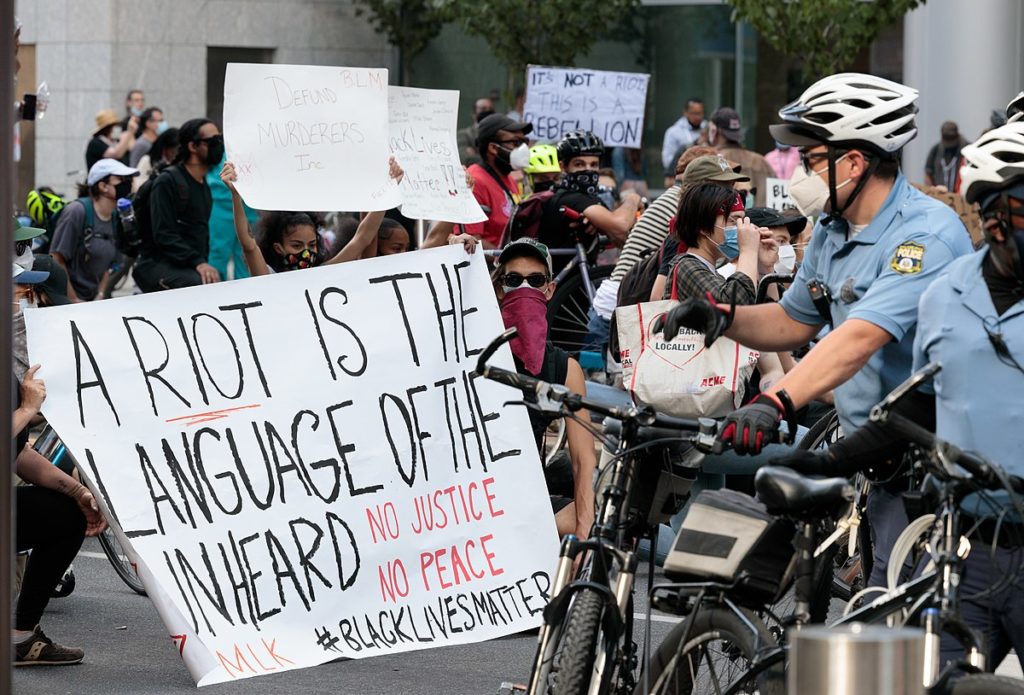Examining Your Organization’s Culture
0 comment
Does every nonprofit regardless of its explicit mission have, by the simple fact that it is a nonprofit, the responsibility to work on social justice? This is the question I pose to every student early in their tenure in the Masters in Nonprofit Leadership program.

I ask this question of myself as I read the multiple statements nonprofits are issuing in the aftermath of our country’s crisis of social and racial injustice. As I read and ponder, I keep returning to the same place: one statement does not qualify as working for social justice. It might make you feel better as you give yourself a pat on the back, but it still smacks of the same tokenism as that lone person who might be used to demonstrate your inclusivity.
While demonstrators and token statements are focused on the behavior of law enforcement, they are a reflection of society—just as we are. It is society as a whole that has failed people of color, and everyone else. If we don’t broaden the focus of our current anger, we run the risk of visiting upon our society our own version of Ground Hog Day. What is the difference between today and 1921? 1964? 1968? 1992?
At The Nonprofit Center’s staff meeting earlier this week, we were processing our stories and emotions. One staff member shared her experience of being at a Target store, with her six-month-old son and eight-year-old daughter. Suddenly, alarms went off and the public address system announced that everyone had to leave immediately—looters had arrived. As she and the crowd moved to exit, she heard the women behind her tell the man she was with to move faster. He said he couldn’t as he didn’t want to run over the baby. Her response? “I don’t give a f** about a black baby.”
I write this, disheartened by the reality that too many of my lifelong fights seem not to have provided the return I had hoped for, nor the progress they should have. We are still a society marred by bigotry, rooted in fear and stupidity. These basest characteristics of human beings, driven by the need to be supreme—as individuals, whites over people of color, men over women; as organizations, one better, bigger, wealthier than another; and as a country. Fear, stupidity and supremacy negate the ability to listen openly, work together and compromise.
Many organizations have spent a lot of time talking about diversity, equity, inclusion, justice, etc., and crafting policies for their organizations. In many ways, this effort should be duplicative. Sadly, though, it isn’t, because too many organizations have, over the decades, ignored their very own core values. So many nonprofits have as a core value, an expression of respect for all, embracing inclusivity in a variety of ways.
The fact that any of these nonprofits is only just now getting around to talking about equity and inclusion speaks volumes about their disregard for their very own core values. If this is you, you have allowed your core values to become invisible, both within and outside of your organization. I must ask if you have done the same with your mission?
One of the things about living core values is that they force a confrontation with the personal core values of everyone affiliated with your organization—from employee to client, board member to other volunteers, funder to collaborator. If an individual’s core values don’t align with the organization’s core values, that individual should not be part of the organization. It means too much cognitive dissonance for the individual and too much potential confrontation within the organization.
One executive director whose organization carefully crafted a statement of solidarity with the protestors (not the rioters), received only one comment in response to the organization’s Facebook post. It was harsh criticism from the spouse of a board member. While I know from my own experience that spouses do not always share the same opinions, if the partnership is to last, there must be a shared set of core values. So it must be with all the partnerships a nonprofit has, be it with a board or staff member, a volunteer, a collaborator, a funder.
While protesting is so important to a healthy democracy, we cannot afford to wait to address issues until mass protesting feels like the only response. As nonprofits, we must start with our own houses and build the culture of social justice and inclusivity that we truly know enriches us all. We have to push it out to others, even down their throats if necessary. It is our duty as nonprofits if we believe that our work is about improving the quality of life for all, no matter how our day to day work goes about achieving that goal.
The opinions expressed in Nonprofit University Blog are those of writer and do not necessarily reflect the opinion of La Salle University or any other institution or individual.
